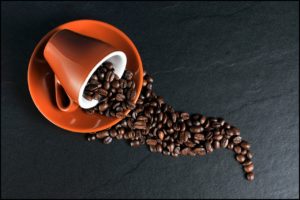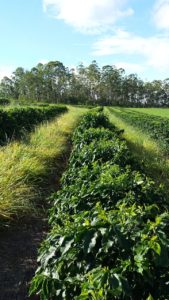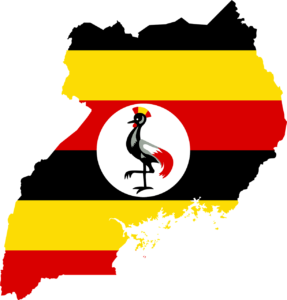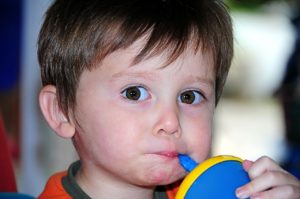New Web-Based App Democratizes Technology for Food Buyers and Suppliers
 Recently launched, BlueCart is a virtual platform for increasing efficiency in the food supply chain and ultimately, cutting down on food waste. It is an app which allows buyers and wholesalers to procure all their supplies from a single, centralized place.
Recently launched, BlueCart is a virtual platform for increasing efficiency in the food supply chain and ultimately, cutting down on food waste. It is an app which allows buyers and wholesalers to procure all their supplies from a single, centralized place.
Rather than purchasing from ten to twenty different suppliers, BlueCart enables buyers to download the app and have access to an electronic catalogue with everything they might need.
“So a farmer, regardless of how big or small they are, they can have mobile and online ordering. They can continue doing their daily tasks on the farm, and then at night they don’t need to worry about listening to answering machines or reading emails, everything is already sorted out.” – Konstantin Zvereff, co-creator and founder
Not Only Carrots, But All Foods High in Vitamin A Help You Keep Your Vision
 Vitamin A deficiency can lead to night blindness, a condition in which people have difficulty adjusting their vision to low levels of light (like when you walk into a movie theatre!), according to ophthalmologist Rebecca Taylor, a clinical spokesperson for the American Academy of Ophthalmology. – NPR, the Salt
Vitamin A deficiency can lead to night blindness, a condition in which people have difficulty adjusting their vision to low levels of light (like when you walk into a movie theatre!), according to ophthalmologist Rebecca Taylor, a clinical spokesperson for the American Academy of Ophthalmology. – NPR, the Salt
Vitamin A does good for keeping your daytime vision as well as nighttime vision because it enables opsin proteins to form in “cone cells” and rhodopsin protein to form in “rod cells”. Cone cells process light in daytime conditions, while rhodopsin will do the same in dim light.
Crisis in Coffee Makes it Ideal Candidate to Become Most Sustainable Agricultural Product
 “The Sustainable Coffee Challenge has recently announced the first four Collective Action Networks that will catalyze the effort to make coffee the first sustainable agricultural product in the world. The coalition, assembled by Conservation International, has more than 65 partners including corporations, governments, NGOs, and research organizations such as Fairtrade America, USAID, and Starbucks.” –Food Tank
“The Sustainable Coffee Challenge has recently announced the first four Collective Action Networks that will catalyze the effort to make coffee the first sustainable agricultural product in the world. The coalition, assembled by Conservation International, has more than 65 partners including corporations, governments, NGOs, and research organizations such as Fairtrade America, USAID, and Starbucks.” –Food Tank
 Rising temperatures and prolonged drought can make coffee trees less productive and increase their exposure to pests and diseases. This is especially a problem in Uganda, where nearly all of the coffee is produced by small farmers who have little access to irrigation or other modern farming conveniences. Coffee is by far the country’s most valuable industry: It accounts for one-fifth of export revenue, and about 1 in 5 Ugandans rely on it for part or all of their income.
Rising temperatures and prolonged drought can make coffee trees less productive and increase their exposure to pests and diseases. This is especially a problem in Uganda, where nearly all of the coffee is produced by small farmers who have little access to irrigation or other modern farming conveniences. Coffee is by far the country’s most valuable industry: It accounts for one-fifth of export revenue, and about 1 in 5 Ugandans rely on it for part or all of their income.
 Sadly, “climate change could slash the country’s coffee production in half by 2050 —a loss worth $1.2 billion, according to a 2015 economic analysis commissioned by the Ugandan government.” Bambi Semroc, who leads the Sustainable Coffee Challenge, which is spurring the global effort to address the growing threats to the coffee industry tells NPR, the Salt.
Sadly, “climate change could slash the country’s coffee production in half by 2050 —a loss worth $1.2 billion, according to a 2015 economic analysis commissioned by the Ugandan government.” Bambi Semroc, who leads the Sustainable Coffee Challenge, which is spurring the global effort to address the growing threats to the coffee industry tells NPR, the Salt.
Putting an End to School Lunch Shaming
New York lawmakers aim to end the practice as states face July 1 deadline to adopt new policies.
 “New York State Sen. Liz Krueger and Assembly member Jo Anne Simon sponsored a bill that would prevent schools in the state from singling out or discriminating students who owe lunch money, or who receive subsidized lunch. Before drafting the bill, the lawmakers consulted with advocacy groups including FRAC. FRAC notes that the best way to protect children is either provide lunch at no cost to all students, or ensure that those students eligible for free or reduced-price school meals are signed up for them. ” –FRAC Digest
“New York State Sen. Liz Krueger and Assembly member Jo Anne Simon sponsored a bill that would prevent schools in the state from singling out or discriminating students who owe lunch money, or who receive subsidized lunch. Before drafting the bill, the lawmakers consulted with advocacy groups including FRAC. FRAC notes that the best way to protect children is either provide lunch at no cost to all students, or ensure that those students eligible for free or reduced-price school meals are signed up for them. ” –FRAC Digest

Comments are closed.